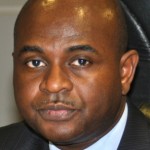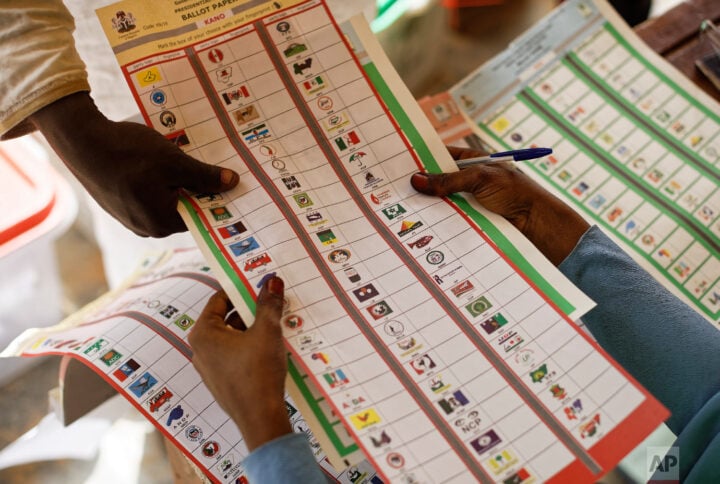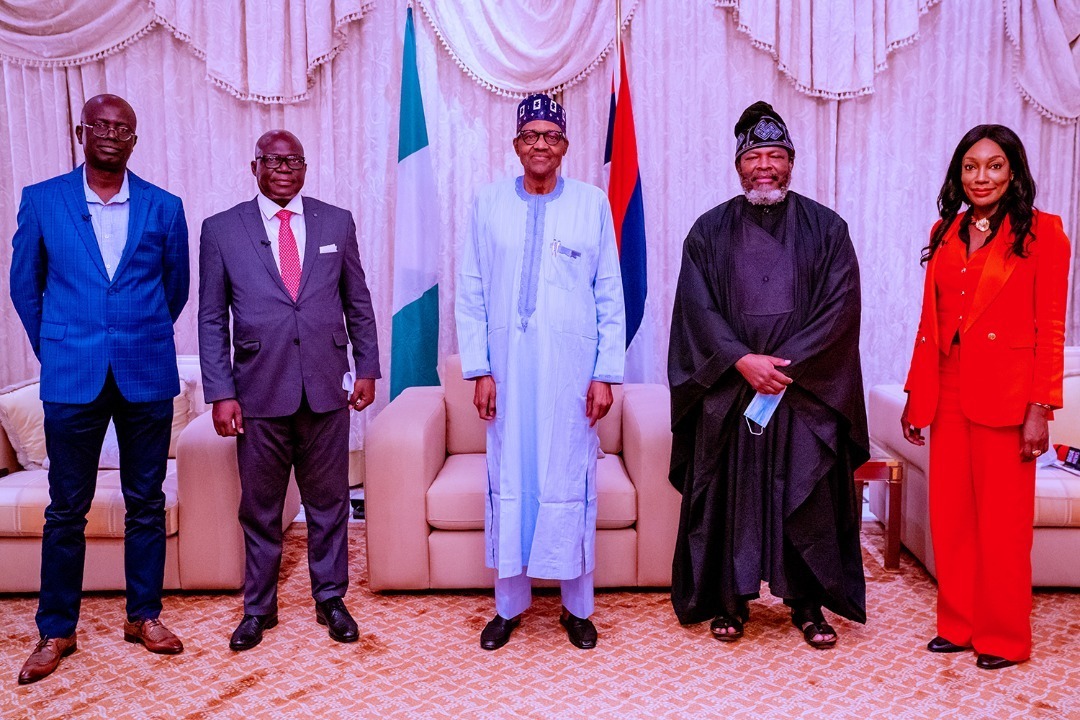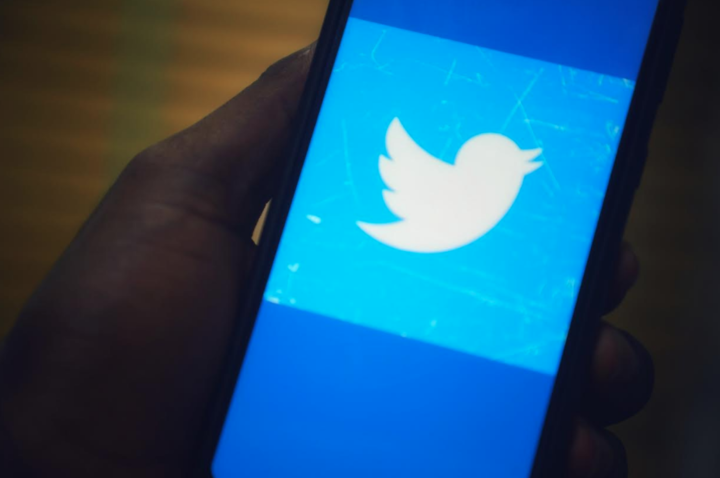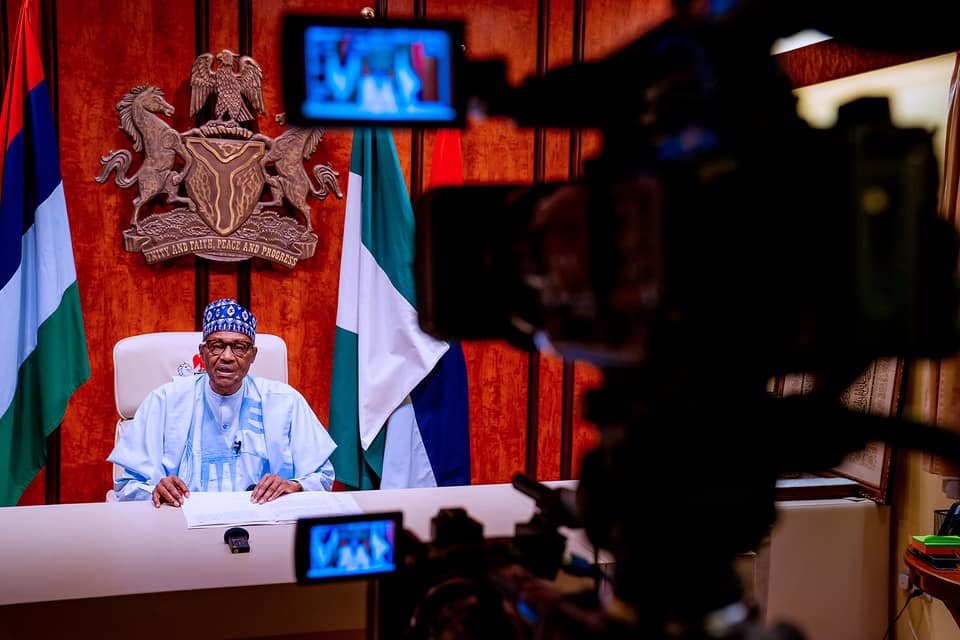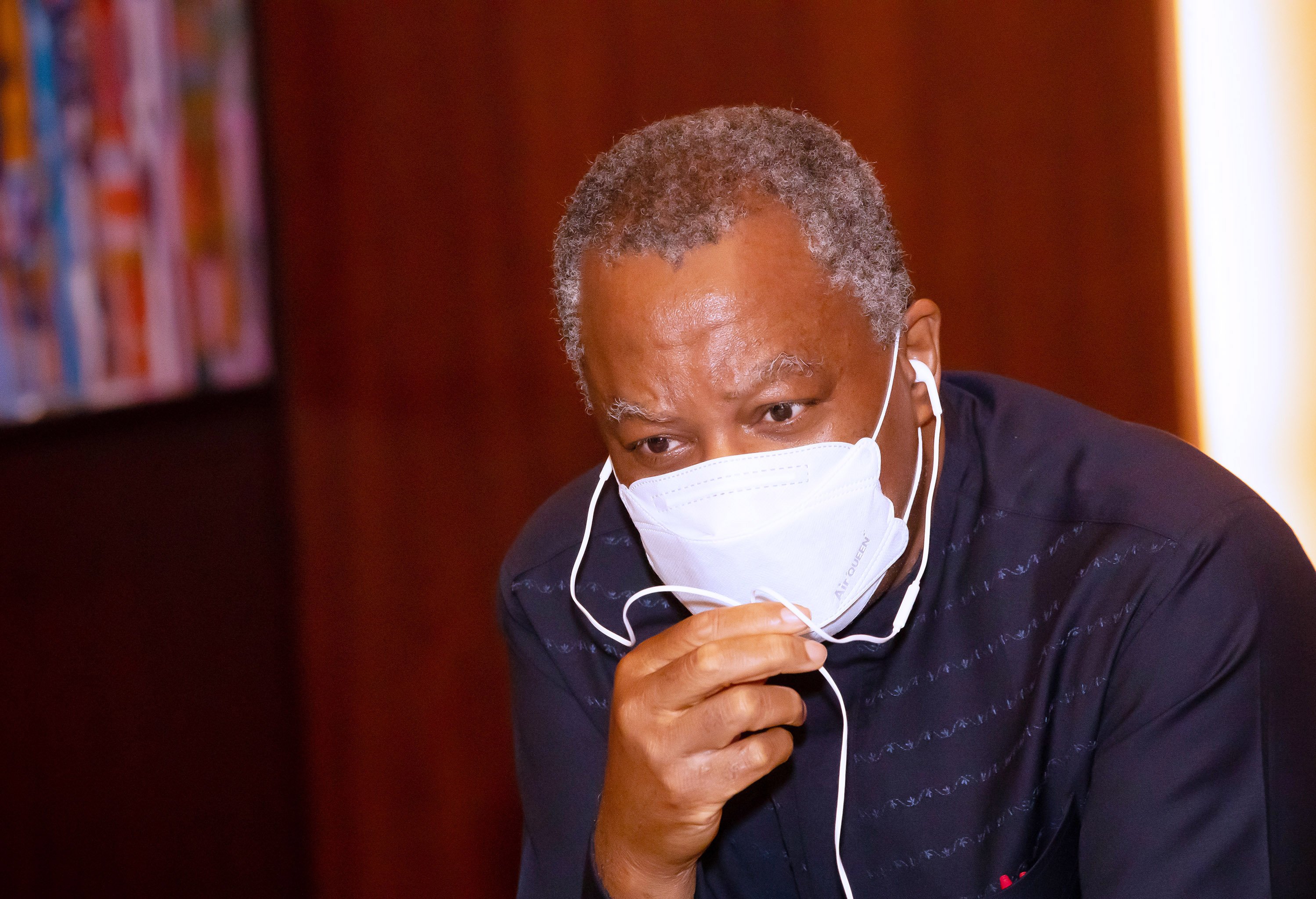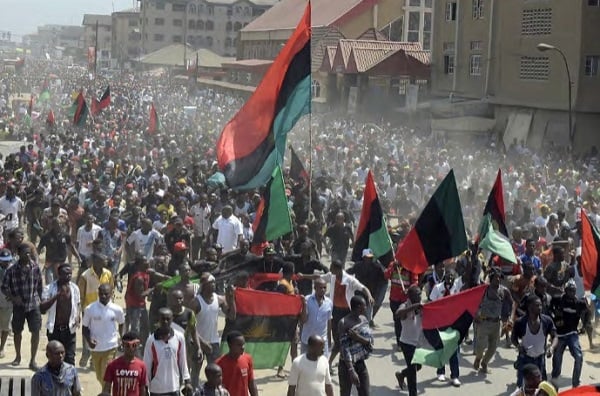An electoral officer hands a ballot paper to a voter at a polling station in the village of Tumfafi, near Kano, in northern Nigeria Saturday, Feb. 23, 2019. Nigerians are going to the polls for a presidential election Saturday, one week after a surprise delay for Africa's largest democracy. (AP Photo/Ben Curtis)
On June 1 I announced, with all humility, my intention to present myself, again, to our country as a candidate in the 2023 presidential election. While the timing of the announcement, given Nigeria’s current existential and security crisis, might have appeared either odd or remarkable (depending on the standpoint of the observer), it was intentional and deliberate.
This was an act of leadership intended to contribute hope into our seemingly hopeless situation. By pointing to a near future in which we can turn our situation around by selecting a different kind of leadership that is ready for the job on Day One if given the opportunity. My announcement also was a signal to many compatriots disaffected with the status quo that we can now rally together around a vision of Nigeria we all share. It will take not one person alone, but all of us working together. Yes, I know some wonder if we will even get to 2023 on current trends. Despite our uniquely trying times, I believe we will and must.
Our current crisis is the direct result of electoral decisions and leadership choices we have collectively made. Put simply, elections have consequences. The only real path forward, therefore, is a change of leadership in another election. But, to what and to whom? More of the same — in the sense that our country’s reigning political elite represented in the two biggest political parties all live in the same house and share the same living rooms and bathrooms — or to something different that can take us truly forward as a country? Unpleasant and scary as today’s Nigeria has become, our present reality should force us to question our prior assumptions about leadership selection.
I seek the Nigerian presidency with a vision to secure and unify our country, manage its economy to real prosperity, and restore our country’s respect in the world. Authoritarian restrictions of our freedoms of expression and assembly undermine all of these goals. I am motivated by an intense dislike of poverty and injustice of any kind, and seek to work with our youth whose future is being drowned by reckless government borrowing, to create a more hopeful future they will inherit.
Advertisement
And I bring to this aspiration the very relevant preparation and track record of leadership performance in national economic management at the Central Bank of Nigeria, international peace and security operations and diplomatic work in the United Nations, and time in the private sector and academia. Not least is my prior political experience as a candidate for the presidency in 2019.
Nigeria’s future is imperiled. But we can turn our present crisis into an opportunity for a rebirth of our country. So we have a choice: In 2023 we can decide to play politics as usual, with no serious consideration for post-election governance (only to complain loudly when the consequences arrive later) or we can proactively seek the leadership we deserve as God’s children too, entitled to electricity, clean water, skills, jobs, security, education and healthcare. While politics and elections are the path to elective leadership in a presumed democracy, they are useless and self-defeating if their only outcomes are the clueless leading the able, the blindfolded leading those with a clear sight. As 2023 looms, apathy as a response to this reality is no longer an option.
There is, then, the practical matter of the question: how do we get from here to there? How will this aspiration be different from 2019, when my candidacy influenced a change in Nigeria’s political narrative but nevertheless fell short at the ballot box?
Advertisement
To begin with, the context of 2019, my first attempt, was significantly different. The electorate was at a very different place. They believed, broadly, that it was still the “turn” of northern Nigeria to produce the President under the informal “zoning” arrangement of Nigerian presidential politics in which the position has been rotated between the northern and southern parts of the country since 1999. President Buhari was an incumbent seeking re-election, with all the advantages of incumbency. And many voters at the time believed in the inevitability of the APC and the PDP. I ran on the platform of a small and new generation party. The electoral system was widely perceived as skewed and lacking in transparency. Voter apathy was rife.
Fast forward to 2021, and it is a very different country in many ways. The extent to which our country has deteriorated, and life in it devalued in the two short years since the 2019 elections is nothing short of stunning. Crushing levels of poverty, unemployment and insecurity — and the massive failures of governance that gave rise to our current nightmare — are leading many compatriots to reassess their prior assumptions about the “inevitability” of our elite career politicians and their political vehicles. Millions of our youth are gearing up to vote in 2023. It will be a playing field unencumbered by incumbency, although we see danger signs inherent in card-carrying partisans of the party and government in power being nominated into the Independent Electoral Commission — which fundamentally casts the institution’s independence into doubt.
We have learnt many lessons from 2019, including the importance of early organization, and will be guided accordingly in our thinking and planning in Moghalu4NIgeria (M4N), our political movement. We will be focused on creating effective structures and a ground game across the country at grassroots level. We continue to push for electoral reform legislation that guarantees that our votes will count, and will be counted transparently. Our movement will decide, at an appropriate time, on a political party of our choice in which we will seek tickets for the presidential, legislative and gubernatorial elections.
We have an agenda of four priorities to advance in four years (4 by 4):
Advertisement
● Security for Nigerans and Nigeria’s territory
● War against poverty: skills, jobs, innovation, access to capital
● Accelerated education and healthcare reform
● Good governance: effective, transparent, inclusive and accountable
This is my SWAG Agenda for Nigeria. We the people matter. Governance must place a higher value on the lives of our compatriots, whether they are victims of terrorism in northern Nigeria and politically inspired violence in the Southeast, or simply those lives devalued by extreme poverty and unemployment. In 2023, we must decide that our country will finally enter the 21st century with modern, capable leaders focused on serving Nigerians instead of building primordial ethnic or personal financial empires.
Kingsley Moghalu, a former deputy governor of the Central Bank of Nigeria, was a presidential candidate in 2019. Twitter handle: @MoghaluKingsley
Advertisement
Advertisement
Advertisement
Views expressed by contributors are strictly personal and not of TheCable.
Add a comment
